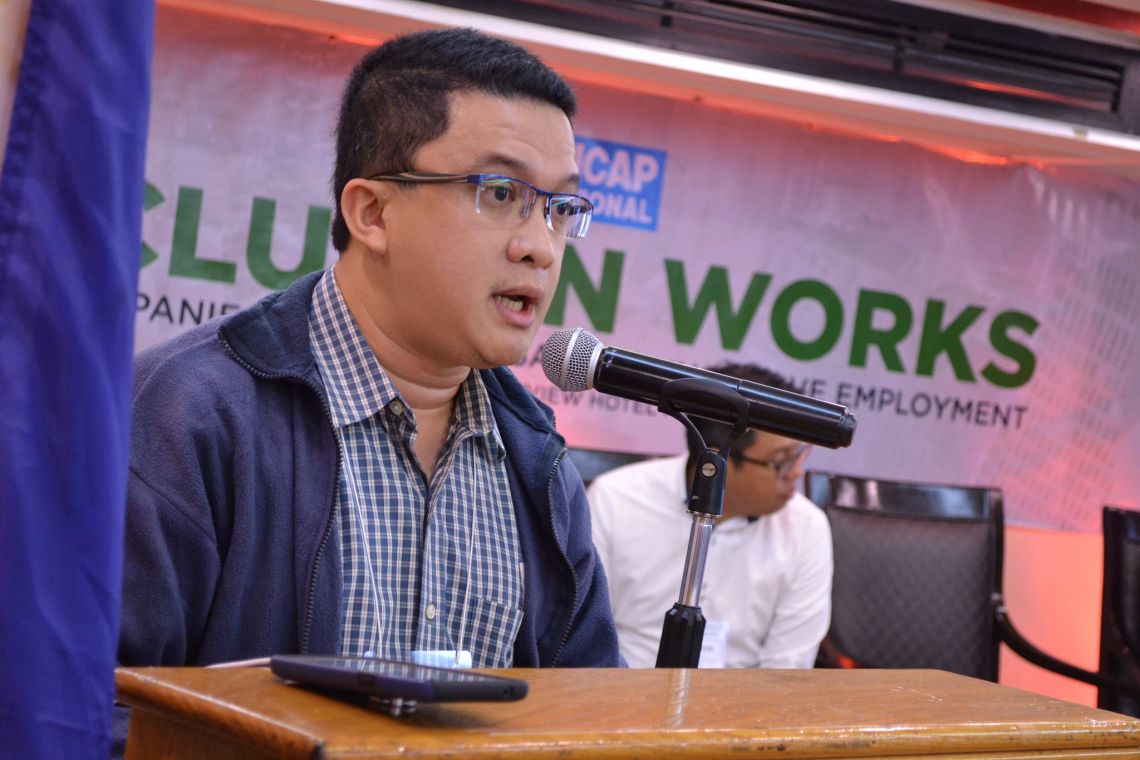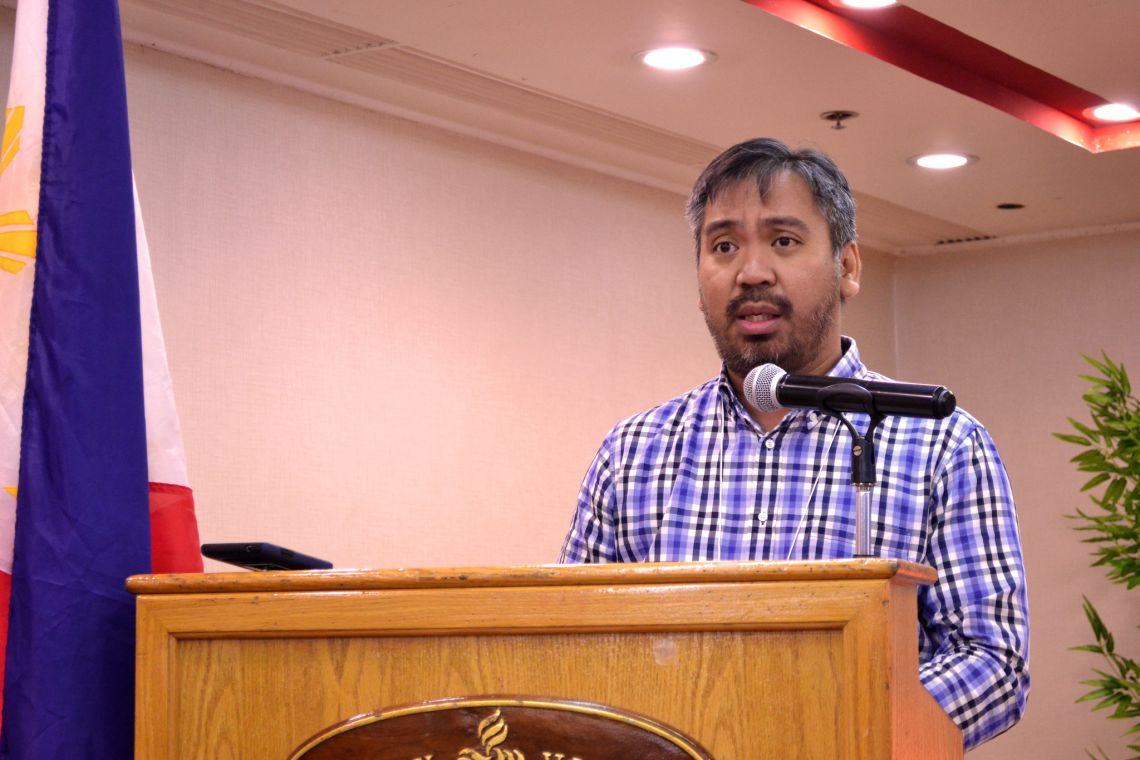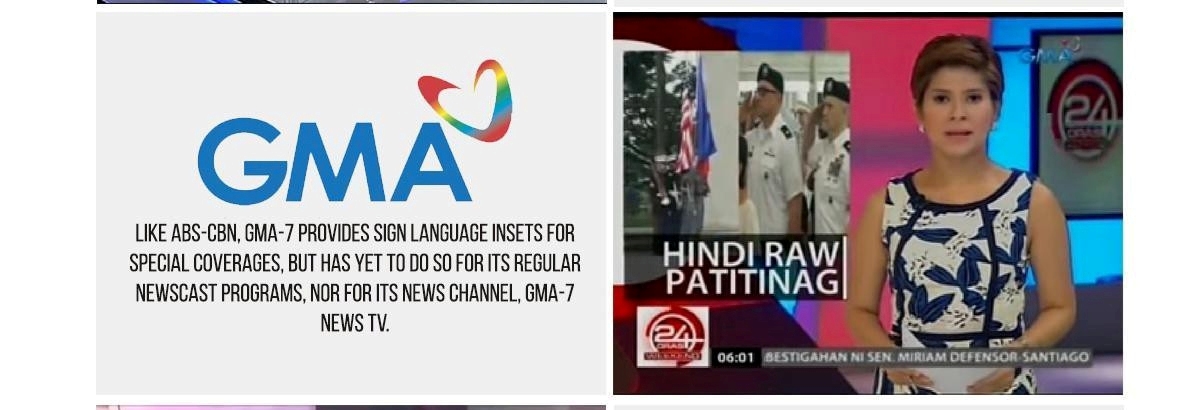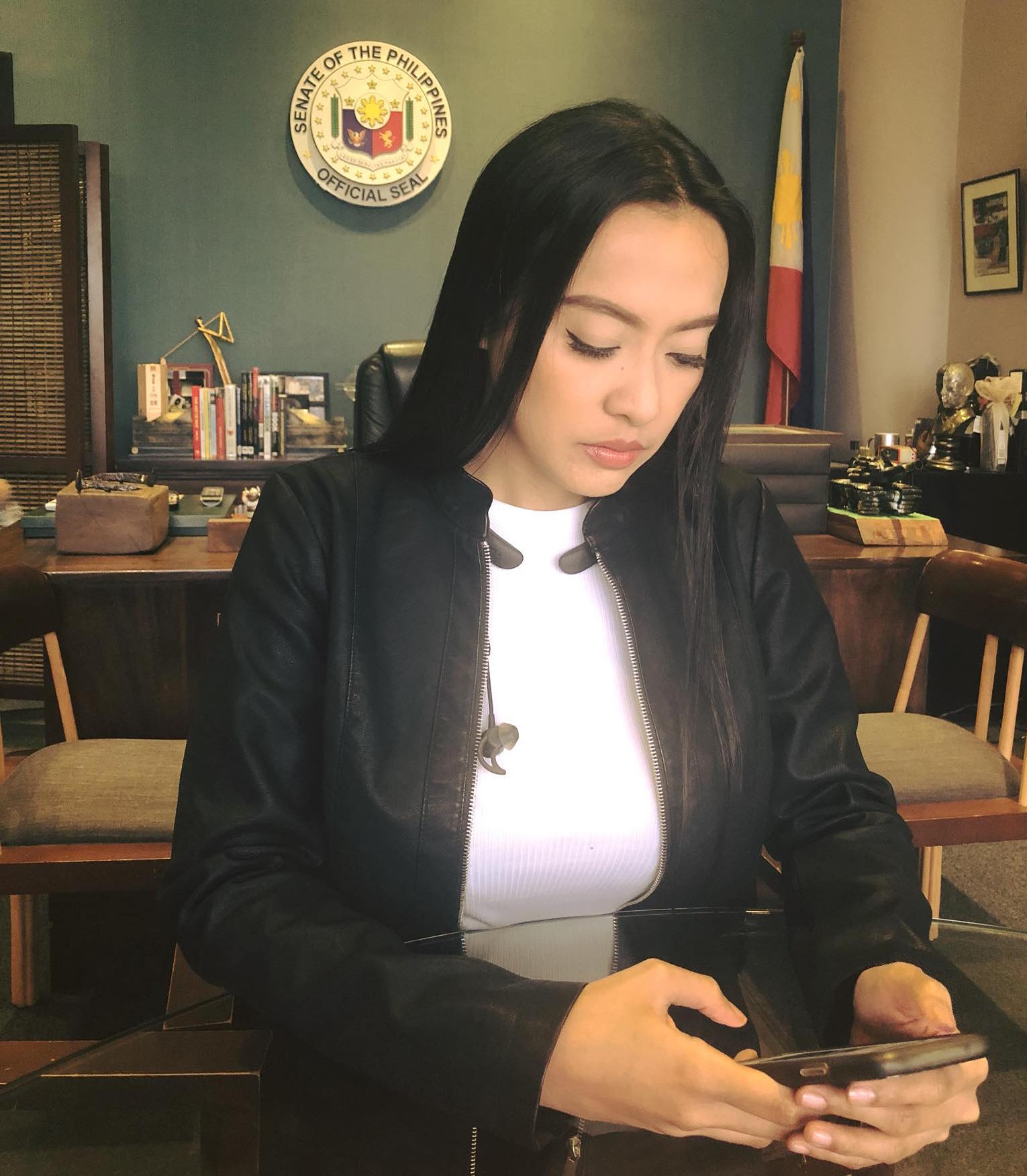
Raphael Torralba, who is hard of hearing, recalls how he used to fear being perceived as a “snub” by his officemates at the Department of Foreign Affairs. To overcome the communication barrier, he taught them how to sign. (Photo from Handicap International)
Raphael Torralba recounts how uncertainty crept up when he entered the halls of the Department of Foreign Affairs in 2014. His first-day-of-work jitters stemmed from a constant fear of being misunderstood, as a person who is hard of hearing.
Not long after, he sought to break communication barriers that prevented him from joining the casual office chit-chats. He introduced deaf awareness to his officemates. Now everyone in the human resource department where he works is familiar with basic sign language.
Torralba’s story proves that persons with disability (PWDs) make good assets in the workplace, contrary to a deeply-rooted stigma that they are mere liabilities. Four years after the passage of a law that expands reserved positions for PWDs, more businesses in the Philippines are championing disability inclusion in the workplace, recognizing skills, loyalty and resilience unique to PWDs.
In a Sept. 20 conference, “Inclusion Works: How Companies Win From Disability Inclusive Employment” in Manila, companies that are known to hire PWDs tackled best practices as well as benefits of mainstreaming PWDs in the workplace.
Passed in 2013, Republic Act No. 10524 amended Republic Act No. 7277 or the Magna Carta for PWDs to require government agencies to reserve at least 1 percent of their total positions to PWDs. Corporations with more than 100 employees are encouraged to do the same.
Statistics, however, show that among the 1.4 million Filipino PWDs, the playing field remains uneven for around 85 percent of them. This disparity is true not only in the Philippines, but in other developing countries as well, estimates from the World Health Organization reveal.
To fill this gap locally, the Unilab Foundation matches PWDs with jobs that fit their unique skills through “Project Inclusion.”
In 2013, it started off by hiring 28 persons with autism and Down syndrome, as the company’s internal study showed people with intellectual and developmental disabilities are least preferred by companies, said project manager Grant Javier.
Talk about proving these companies wrong, the Unilab Foundation’s website that serves as a “LinkedIn for PWDs” has employed 124 PWDs in different companies in retail, technology, manufacturing, hospitality, as well as freelancers like painters, writers and sculptors.
“Osel”, who has autism and works in a popular drugstore chain, is one. She has a fixation for time, which some people could find weird, said Javier. Sometimes, she’d hold an alarm clock and start speaking incessantly about time zones.
But her penchant for timekeeping proved useful when two employees complained about inconsistencies in time records. The management called up Osel, who was then an inventory processing clerk, and it turned out she had been keeping unofficial logs of tardy employees.
The two employees simply couldn’t contest Osel’s case, knowing persons with autism have very low propensity for lying.
Now, she’s official timekeeper and the final arbiter for tardiness complaints, and seldom do people in their office come to work late, Javier said.

Grant Javier of the Unilab Foundation shares the company’s successes in providing jobs for PWDs through a website it developed in 2016. (Photo from Handicap International)
“Because it’s so hard for them to find jobs, they stay at that job, grow within it and take pride in what they do,” said Dorothy Garcia of US-based Harkin International Disability Employment Summit.
Garcia, who has worked closely with PWD-inclusive businesses around the globe, said besides corporate social responsibility, companies can use hiring PWDs for “smart branding.”
“If you’re just starting out, why don’t you make it part of your image and brand to be known as the company that hires inclusively?” Garcia said.
ANZ, a multinational banking company, stands as proof of how companies can become models for disability inclusion. In 2015, it won the Apolinario Mabini Awards for mainstreaming PWD in corporate employment.
From four PWDs in 2010, the company now has 61 working in contact centers, knowledge processing and banking operations.
Garcia added that companies in developing countries usually have reservations about hiring PWDs because of the need to “devote more resources to people that might need a little bit more training.”
Javier of Unilab Foundation agrees that training PWDs is difficult, but says the long-term rewards are worth it.
One thing he learned in working with PWD-inclusive companies is that hiring PWDs creates positive working environments.
“Teams become better human beings, because they learn to be more understanding, more embracing, more compassionate toward others.”
More, hiring PWDs can solidify bonds among employees.
“Companies spend a great deal of money trying to do team building, but the best exercise to do everyday team building? Hire a PWD. You will get everyone to work together,” Javier said.
This holds true for Torralba and his officemates in the DFA, who had pushed him to “raise his bar” and achieve a dream he didn’t realize he wanted: be a foreign service officer.
“As an employee, the difficulties of being a hard of hearing person are peppered with obstacles that no normal hearing person would ever even have to consider,” Torralba said.
Yet, amid communication barriers, Torralba is assured of support and understanding from his officemates.
“They make me feel like I’m part of the family and never make me feel alone.”
Besides, all humans are “potential diplomats,” he said. In that case, anyone can be an ambassador for PWD awareness: “It can be that one.”


